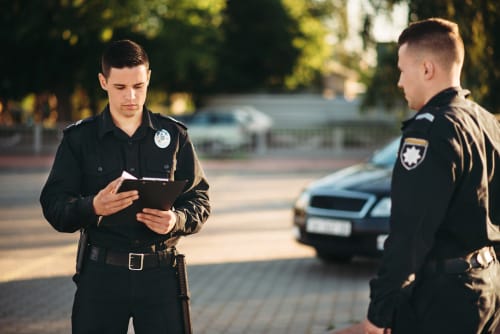
How to Help a Loved One in Law Enforcement Who Struggles with Addiction
Police officers often have a difficult job because they are dealing with all sorts of things on a daily basis that can be considered dangerous and mentally taxing. They see things most others don’t see and are called on to uphold the law. This makes it difficult to get help for addiction that may be spinning out of control for police officers and law enforcement personnel.
Self-Medicating
Law enforcement officers are not the only ones struggling with drug abuse and addiction. They see it on the job, but they are also susceptible because of the stress, long hours, workplace issues, and public pressure to perform. The overwhelming amount of things they see every day can lead to PTSD, trauma, mental health issues, and, of course, addiction. Dealing with drugs on a daily basis can be triggering for law enforcement personnel who want to get clean and sober but struggle with constant contact with drugs.
Embrace Vulnerability
Police officers are people who protect others and their rights on the street. Police officers are people who have stress in their lives and process trauma most people cannot imagine. Death and violence are part of their work, unfortunately. They spend less time with loved ones than others and work irregular hours. They need somewhere to be vulnerable but, quite often, find their partners and people at work are the last places to turn. They need outside spaces to feel heard and valued for who they are without worrying about stigma. Drugs are also illegal so, to admit to using, may land them in hot water. Using them is breaking the law and they may end up with their butt on the line, including their department, as well. It may feel hard to reach out for help, but it is worth doing before things take a turn for the worse. If a loved one is struggling, some ways to help:
- Do an intervention with trained people who understand addiction and law enforcement personnel
- Seek therapy as a family and find support
- Find treatment programs designed for law enforcement people
- Don’t give up even when it seems they don’t change
Understand that the loved one likely has some trauma, neglect, history of abuse, or other things layered into addiction. There may be mental health issues, as well. Many people are struggling with addiction, so find help for them that makes sense for their individual situation and move forward slowly. Don’t push them into it or they may turn away and not come back to ask for help. Professional support is always a good way to go if all else fails in seeking help for a loved one.
The Palmetto Center is based on a Therapeutic Community model. We help people learn how to live free of addiction. Our community support provides structure while trained counselors offer life skills training and therapeutic techniques to help you move past addiction. Our program provides a special focus for professionals including chiropractors, nurses, doctors, lawyers, and more who need help with addiction recovery. Call us to find out more: 866-848-3001.